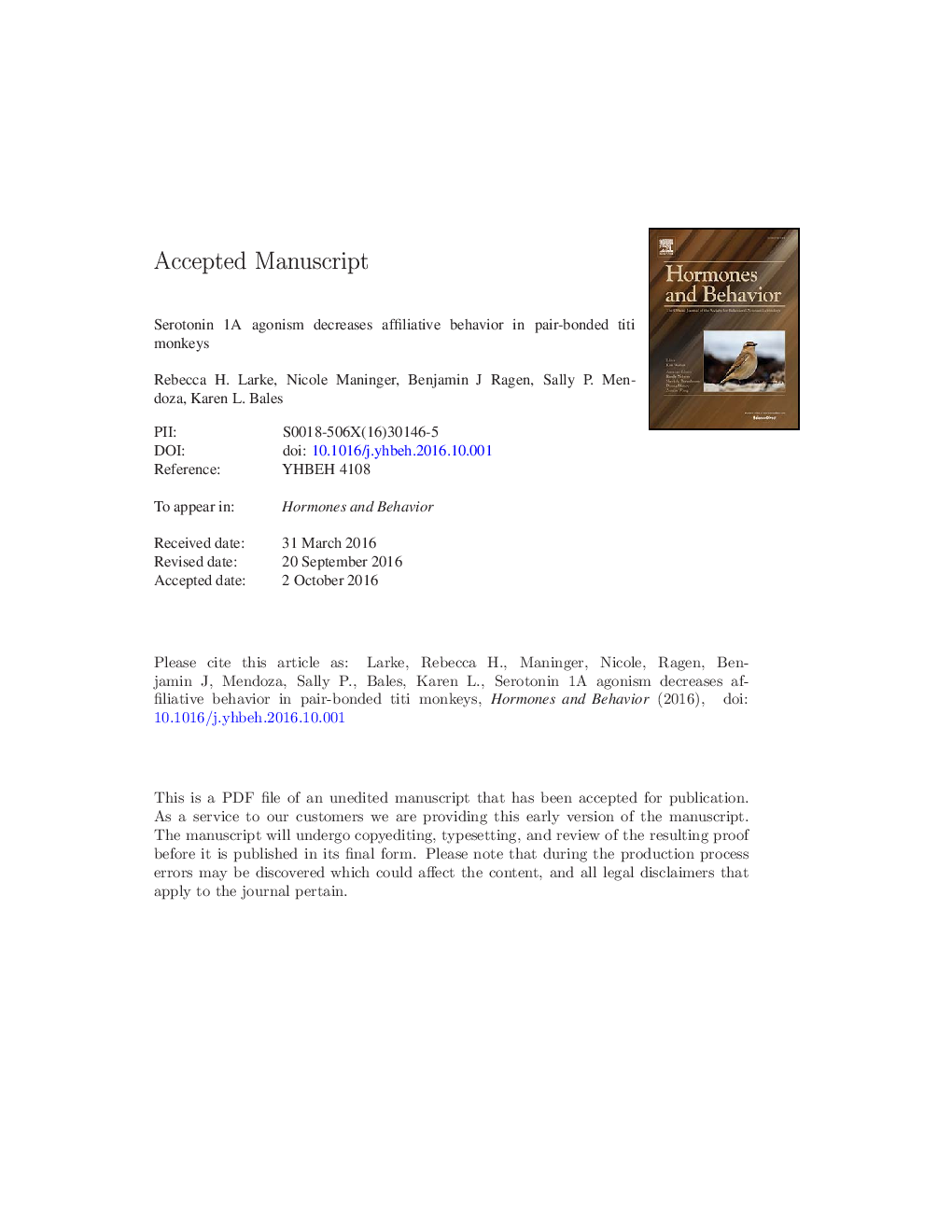| Article ID | Journal | Published Year | Pages | File Type |
|---|---|---|---|---|
| 4931248 | Hormones and Behavior | 2016 | 36 Pages |
Abstract
Relatively little is known about serotonergic involvement in pair-bonding despite its putative role in regulating social behavior. Here we sought to determine if pharmacological elevation of serotonin 1A (5-HT1A) receptor activity would lead to changes in social behavior in pair-bonded male titi monkeys (Callicebus cupreus). Adult males in established heterosexual pairs were injected daily with the selective 5-HT1A agonist 8-OH-DPAT or saline for 15Â days using a within-subjects design. Social behavior with the female pair-mate was quantified, and plasma concentrations of oxytocin, vasopressin, and cortisol were measured. When treated with saline, subjects showed reduced plasma oxytocin concentrations, while 8-OH-DPAT treatment buffered this decrease. Treatment with 8-OH-DPAT also led to decreased plasma cortisol 15Â minutes post-injection and decreased social behavior directed toward the pair-mate including approaching, initiating contact, lipsmacking, and grooming. The reduction in affiliative behavior seen with increased activity at 5-HT1A receptors indicates a substantial role of serotonin activity in the expression of social behavior. In addition, results indicate that the effects of 5-HT1A agonism on social behavior in adulthood differ between rodents and primates.
Related Topics
Life Sciences
Biochemistry, Genetics and Molecular Biology
Endocrinology
Authors
Dr. Larke, Dr. Maninger, Dr. Ragen, Dr. Mendoza, Dr. Bales,
